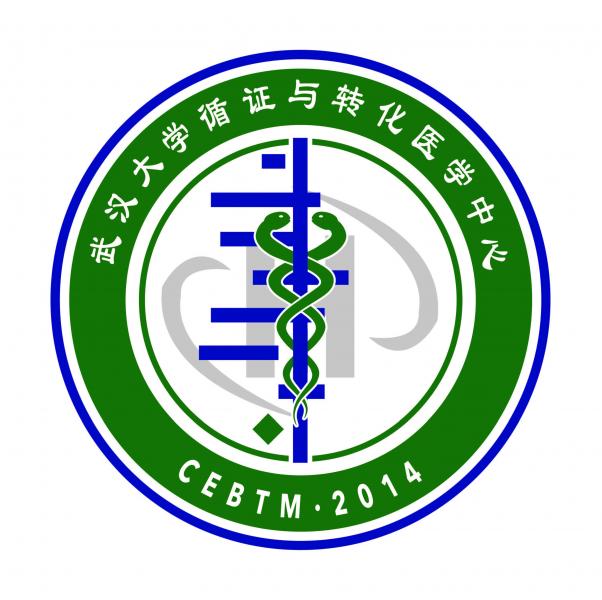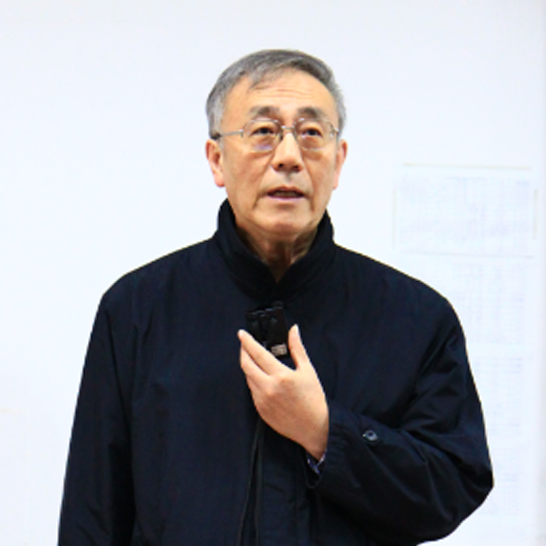I. Center for Evidence-Based and Translational Medicine, Zhongnan Hospital of Wuhan University

The Center for Evidence-Based and Translational Medicine, Zhongnan Hospital of Wuhan University (https://cebtm.znhospital.cn/) was officially established on August 19, 2014 (hereinafter referred to as the “Center”). The center is an independent institution set up by the hospital and is directly managed by the dean of the hospital. It is dedicated to the teaching and research operations of evidence-based medicine, evidence synthesis,knowledge transformation, evidence-based decision making and clinical epidemiology. On this basis, the Center for Evidence-Based and Translational Medicine of Wuhan University was then established on September 15, 2014, and is managed by the Science and Technology Development Research Institute of Wuhan University. On September 14, 2016, the Department of Evidence-Based Medicine and Clinical Epidemiology was established under second clinical college of Wuhan University; On June 5, 2019, the Library of Zhongnan Hospital and the Editorial Department of New Medicine were integrated into the Center. The Center currently has 5 secondary institutions: the teaching and research office,several other research offices (the evidence-based medical research office, the knowledge translational research office, the clinical research laboratory, the evidence-based decision research office,), the academic office, the Editorial Department of New Medicine (Chinese name: Yixue Xinzhi Zazhi; http://www.jnewmed.com/) and the hospital library. The main responsibilities are:
(1) Organizing research on evidence-based medicine and clinical research and establishing relevant databases;
(2) Organizing training in evidence-based medicine and clinical research methodology and Training evidence-based medicine and clinical research talents;
(3) Guiding the development of evidence-based clinical practice and promoting clinical decision-making;
(4) Teaching of evidence-based medicine, clinical research and clinical epidemiology related courses for undergraduate, master, doctor and international students of Wuhan University School of Medicine;
(5) Overseeing the operation of affiliated academic organizations, organizing academic exchange activities, and disseminating the latest knowledge;
(6) Providing social services of evidence-based medicine (See below for details);
(7) The editing, publishing and promotion of the New Medicine;
(8) The construction of the library, daily work and hospital services, and the linkage with libraries of the university and the medical department.
After more than six years of development, the center has 23 full-time teaching and research personnel (including 6 in the editorial department and 4 in the Library), and 19 part-time researchers, from Wuhan University Dental Hospital, Zhongnan Hospital, the People's Hospital and the School of Health. The center is now undertaking "Evidence-Based Medicine", "Evidence-based Clinical Practice", "Clinical Research Thinking and Methods", "Clinical Research", and "Clinical Research Design" courses; participating in "Health Economics", "Medical Literature Guide" and other courses for doctoral, master, international, eight-year and undergraduate students of Wuhan University School of Medicine. The MOOC course of "Evidence-based medicine" was also officially launched on September 23 this year.
The center has also been awarded a number of major projects such as the important and special project sponsored by Ministry of National Science and Technique, projects of the National Natural Science Foundation, projects of the National Health and Safety Commission, and the Hubei Provincial Technical Innovation Major Project, Hubei Provincial Science and Technology Department General Project, Hubei Provincial Health Commission Joint Fund. The total funding is nearly 30 million yuan. In addition, members have had over 20 books and more than 300 papers published, and been granted 5 provincial and ministerial level first prize, second prize and third prize awards, and more than 50 trainees from Beijing, Guangdong, Chongqing, Henan and Shanghai have been accepted by the center.
The center is also a member unit of the Expert Committee on the Clinical Application of Antimicrobial Drugs and Bacterial Resistance Evaluation of the National Health Commission; a Standing Committee Unit of the Evidence-based Medicine Branch of the China Medical Care International Exchange Promotion Association, the Evidence-based Preventive Medicine Professional Committee of the Chinese Preventive Medicine Association, and the Chinese Medicine Standardization Branch of the Chinese Association for Standardization; one of the editorial board units of Journal of Modern Urology, National Medical Journal of China, Chinese Journal of Clinicians, Chinese Journal of Evidence-Based Cardiovascular Medicine, Chinese Journal of Evidence-Based Medicine, Chinese Medical Ethics.
The methodological support that the center can provide includes: (1) Secondary research: systematic review, various types of Meta-analysis, Meta integration, summary evaluation; (2) Translational research: evidence-based evaluation, clinical practice guidelines, clinical pathways, health economics ; (3) Health technology evaluation: drug health technology evaluation, health technology evaluation of treatment plans, health technology evaluation of genetic monitoring technology, health technology evaluation of medical equipment; (4) pharmacoeconomics: minimum cost analysis, cost-effectiveness/ Benefit/utility analysis, pharmacoeconomic analysis based on mathematical models, pharmacoeconomic research based on big data; (5) Original studies: randomized trials, observational studies, real-world studies, diagnostic tests, genetic association studies, qualitative research, health economics, clinical research design, clinical research plan, statistical analysis, data management.
Central culture

Center LOGO: The center LOGO consists of Wuhan University (outer circle, blue, green and white; representing the center is the teaching and research platform of Wuhan University), Zhongnan Hospital of Wuhan University (middle background, dark red; representing Zhongnan Hospital of Wuhan University is the cornerstone of the center's dependence),the International Cochrane Collaboration (the middle half circle and the forest plot; representing the attributes of the center), and the medical logo snake stick (wrapped around the line of no effect, green; representing the center is committed to serving medicine and medical education). Green symbolizes that the center is a new department, full of vitality and hope; blue symbolizes that the center style is calm, rational, and loyal to the unit and cause; dark red symbolizes the seriousness and nobility of the mission of helping the wounded and the dying, and the sincere heart of the center to serve the medical cause; white symbolizes the purity of the original heart of the center no matter when and where. The inner circle is full of semicircles, which symbolizes harmony in the face of difference, seeking common ground while preserving differences. While promoting individualized development, this must also be subordinate to the team; the outermost layer is surrounded by a circle, which symbolizes the completion of harmony between the center and the outside.
II. Management Structure of the Center
Director
• Ying-Hui Jin, M.N., M.D., Ph.D
Associate Professor of Zhongnan Hospital/Second Clinical College of Wuhan University, Deputy Director of the Department of Evidence-based Medicine and Clinical Epidemiology, Second Clinical College of Wuhan University
Email: jinyinghui0301@163.com

Members
• Xian-Tao Zeng, M.P.H., M.D.,Ph.D
Deputy director of Center for Evidence-Based and Translational Medicine of Wuhan University, executive deputy director of Center for Evidence-Based and Translational Medicine, Zhongnan Hospital of Wuhan University, director of evidence-based medicine and Clinical Epidemiology Department of Second Clinical College of Wuhan University, and deputy director of Personnel Department of Zhongnan Hospital of Wuhan University
Email: zengxiantao1128@163.com

• Yi Guo, M.S., M.D., Ph.D.
Re-appointed professor of Center for Evidence-Based and Translational Medicine, Zhongnan Hospital of Wuhan University, Vice Chairman of Hubei Epidemiology Branch, Vice Chairman of Wuhan Epidemiology Society
Email: guoyi@whu.edu.cn

• Qiao Huang, M.P.H., M.N.
Assistant researcher of Center for Evidence-Based and Translational Medicine, Zhongnan Hospital of Wuhan University/Department of Evidence-Based Medicine and Clinical Epidemiology, Second Clinical College, Wuhan University
Email: Stat.bigdata@gmail.com

• Yun-Yun Wang, M.P.H., M.N.
Assistant researcher of Center for Evidence-Based and Translational Medicine, Zhongnan Hospital of Wuhan University/Department of Evidence-Based Medicine and Clinical Epidemiology, Second Clinical College, Wuhan University
Email: 13545027094@163.com

• Li-Sha Luo, M.P.H.
Assistant researcher of Center for Evidence-Based and Translational Medicine, Zhongnan Hospital of Wuhan University/Department of Evidence-Based Medicine and Clinical Epidemiology, Second Clinical College, Wuhan University
Email: 13006362970@163.com

• Xu-Hui Li, M.P.H.
Assistant researcher of Center for Evidence-Based and Translational Medicine, Zhongnan Hospital of Wuhan University/Department of Evidence-Based Medicine and Clinical Epidemiology, Second Clinical College, Wuhan University
Email: Xuhuili2011@hotmail.com

• Yong-Bo Wang, M.P.H.
Assistant researcher of Center for Evidence-Based and Translational Medicine, Zhongnan Hospital of Wuhan University/Department of Evidence-Based Medicine and Clinical Epidemiology, Second Clinical College, Wuhan University
Email: wangyb20172030@163.com

Secretary
• Si-Yu Yan, M.P.H.
Assistant researcher of Center for Evidence-Based and Translational Medicine, Zhongnan Hospital of Wuhan University/Department of Evidence-Based Medicine and Clinical Epidemiology, Second Clinical College, Wuhan University
Email: znebm_ysy@163.com

• Yu Wang, M.N.
Teaching Secretary of Center for Evidence-Based and Translational Medicine, Zhongnan Hospital of Wuhan University/Department of Evidence-Based Medicine and Clinical Epidemiology, Second Clinical College, Wuhan University
Email: 498179793@qq.com

III. Introduction to Cochrane Collaboration and Searching in Cochrane Library
The Cochrane Collaboration (hereafter referred to as Cochrane, www.cochrane.org) is a global independent network of researchers, professionals, patients, carers, and people interested in health. Cochrane’s 82,000 members and supporters from more than 130 countries work together to produce credible, accessible health information that is free from commercial sponsorship and other conflicts of interest. Many of its members are world leaders in their fields - medicine, health policy, research methodology, or consumer advocacy - and Cochrane Groups are situated in some of the world's most respected academic and medical institutions.
Cochrane believes that a world of improved health is possible when decisions about health and health care are routinely based on high quality, relevant and up-to-date synthesized research evidence, which it publishes in the Cochrane Library (www.cochranelibrary.com). The Cochrane Library is an internationally recognized and unique source of reliable, independent information on the effects of interventions in health care. Its principal component is the Cochrane Database of Systematic Reviews (CDSR), containing over 8,500 Cochrane Reviews. Cochrane does not accept commercial or conflicted funding and requires that Cochrane Reviews and other ‘Cochrane Content’ are produced free from commercial bias and interference. This is vital for the organization to generate authoritative and reliable information, working freely, unconstrained by commercial and financial interests.
If you want to know more about the introduction to Cochrane Collaboration and the searching in Cochrane Library, welcome to click the following link to enter and study the MOOC courses made by our center.
https://www.icourse163.org/learn/WHU-1450303358?tid=1450736616#/learn/content?type=detail&id=1238651151&sm=1 (2.4.1 Introduction to Cochrane Collaboration)
https://www.icourse163.org/learn/WHU-1450303358?tid=1450736616#/learn/content?type=detail&id=1238935465&sm=1 (2.4.2 Searching in Cochrane Library)
